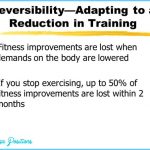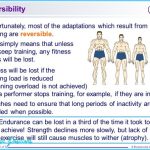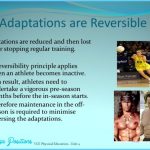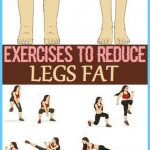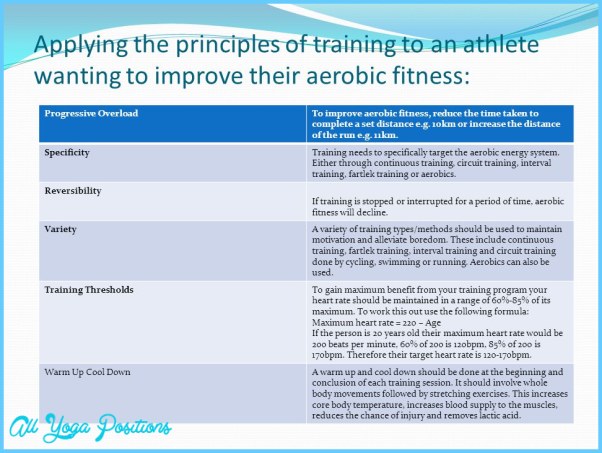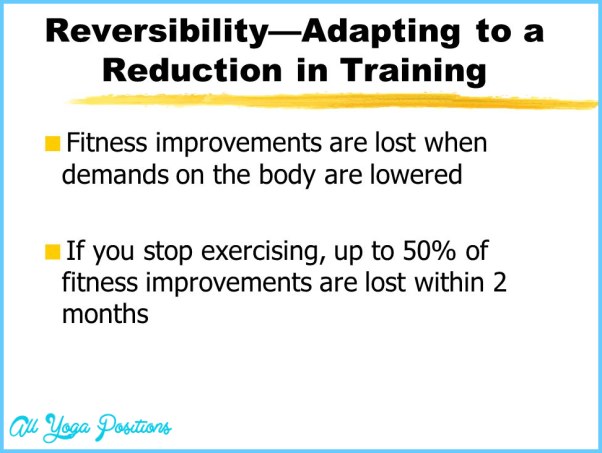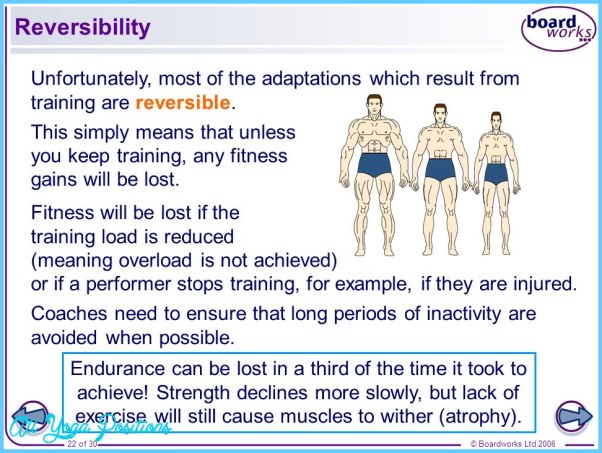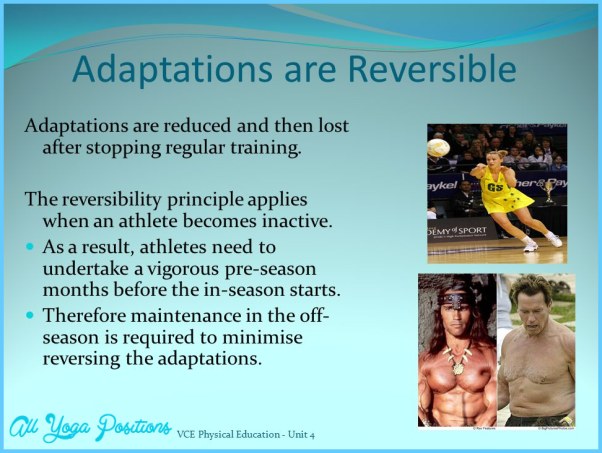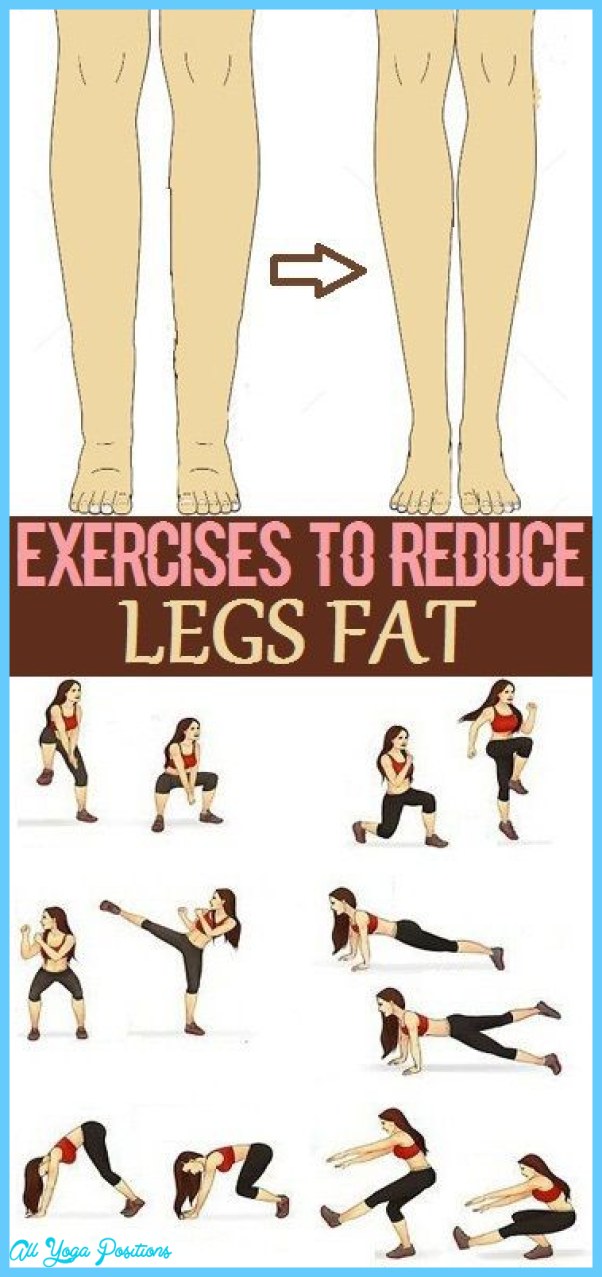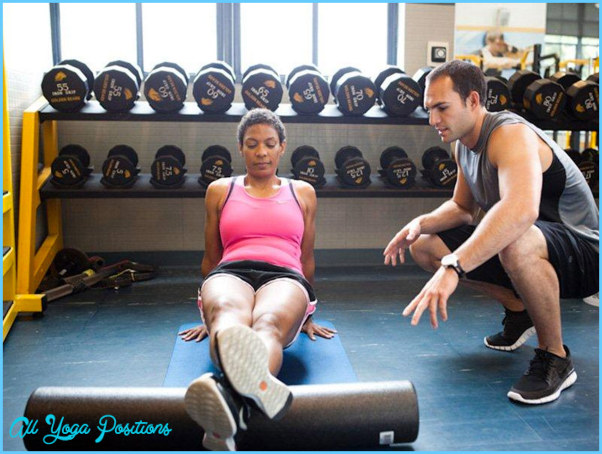Reversibility Adapting to a Reduction in Fitness Training
Fitness is a reversible adaptation. The body adjusts to lower levels of physical activity the same way it adjusts to higher levels. This is the principle of reversibility. When a person stops exercising, up to 50% of fitness improvements are lost within two months. However, not all fitness levels reverse at the same rate. Strength fitness is very resilient, so a person can maintain strength fitness by doing resistance exercise as infrequently as once a week. On the other hand, reversibility The training principle that fitness improvements are lost when demands on the body are lowered, cardiovascular and cellular fitness reverse themselves more quickly sometimes within just a few days or weeks. If you must temporarily reduce the frequency or duration of your training, you can maintain much of your fitness improvement by keeping the intensity of your workouts constant.
Reversibility Adapting to a Reduction in Fitness Training Photo Gallery
Individual Differences Limits on Adaptability
Anyone watching the Olympics can see that, from a physical standpoint, we are not all created equal. There are large individual differences in our ability to improve fitness, achieve a desirable body composition, and learn and perform sports skills. Some people are able to run longer distances, lift more weight, or kick a soccer ball more skillfully than others will ever be able to, no matter how much they train. People respond to training at different rates, so a program that works for one person may not be right for another person.
There are limits on the adaptability the potential for improvement of any human body. The body’s ability to transport and use oxygen, for example, can be improved by only about 5-30% through training. An endurance athlete must therefore inherit a large metabolic capacity to reach competitive performance levels. In the past few years, scientists have identified specific genes that influence body fat, strength, and endurance. For example, more than 800 genes are associated with endurance performance, and 100 of those determine individual differences in exercise capacity. However, physical training improves fitness regardless of heredity. The average person’s body can improve enough to achieve reasonable fitness goals.
At the gym, it can be intimidating to find yourself surrounded by people who seem to be in better shape than you are. But remember: They got in shape by focusing on themselves, not by worrying about what other people thought about them. You can avoid feeling intimidated by doing the same thing. Focus on you, and let others worry about themselves. exercise stress test A test usually administered on a treadmill or cycle ergometer using an electrocardiogram (EKG or ECG) to analyze changes in electrical activity in the heart during exercise; used to determine if any heart disease is present and to assess current fitness level, graded exercise test (GXT) An exercise test that starts at an easy intensity and progresses to maximum capacity,



